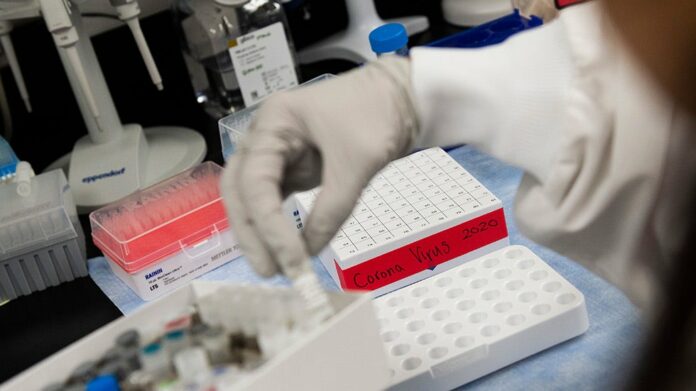A pair of peer-reviewed lab studies conducted by research teams at Beth Israel Deaconess Medical Center (BIDMC) in Boston suggest that antibodies created in response to COVID-19 provide immunity from the disease.
The studies suggesting one can’t become reinfected with the coronavirus were both published in the journal Science on Wednesday.
In one of the studies, nine rhesus macaque monkeys, which share 93 percent of the same DNA as humans, were injected with SARS-CoV-2, the virus that causes COVID-19. The virus quickly spread and all of the animals developed viral pneumonia, though all of them recovered within 28 days.
A week after they had all recovered, researchers once again injected the virus into the monkeys. They detected small amounts of the virus in some of the monkeys’ lungs, but none of them got sick, their immune systems protecting them.
“We have to be careful about making predictions for humans,” Dan Barouch, lead author of the studies and head of BIDMC’s Center for Virology and Vaccine Research, told The Boston Globe. “But I can say these data increase our optimism that natural immunity and vaccine-induced immunity can be achieved in humans.”
He added, “It has long been suspected that there would be natural protective immunity [after recovery from COVID-19] because most viruses do that, but that’s not always the case. Our team found this data very compelling.”
In the other study, Barouch and his staff took 35 rhesus macaque monkeys, vaccinating 25 of them with two doses of one of six prototype DNA vaccines created for the study. Where regular vaccines use some dead version of the virus, the created-DNA vaccines used the genetic code of the proteins that researchers believe the coronavirus uses to invade cells.
All of the vaccinated monkeys created antibodies against the virus, with some creating amounts comparable to the monkeys who had recovered from COVID-19 itself in the other study.
Many scientists are skeptical of DNA vaccines, and one has never been officially licensed for clinical use. None of the prototype DNA vaccines used in the study are part of the large group of coronavirus vaccines being tested by drug companies around the world.
“If a DNA vaccine can work, then that really tells you this is probably doable,” Nelson Michael, a member of the White House coronavirus task force and director of the Center for Infectious Diseases Research at the Walter Reed Army Institute of Research, told the Globe.
Michael added that Barouch’s teams had found a direct link between the level of protection from the virus and the number of antibodies in the vaccinated monkeys, calling it the “holy grail of vaccine development.”
“If you can figure out a lab test that would accurately predict who’s likely to be protected and who’s not likely to be protected, that’s huge,” Michael said.
While there are multiple COVID-19 antibody tests on the market currently, scientists until now have stopped short of saying that the presence of antibodies equates to immunity from the disease.
“There is currently no evidence that people who have recovered from COVID-19 and have antibodies are protected from a second infection,” the World Health Organization said on April 24.






